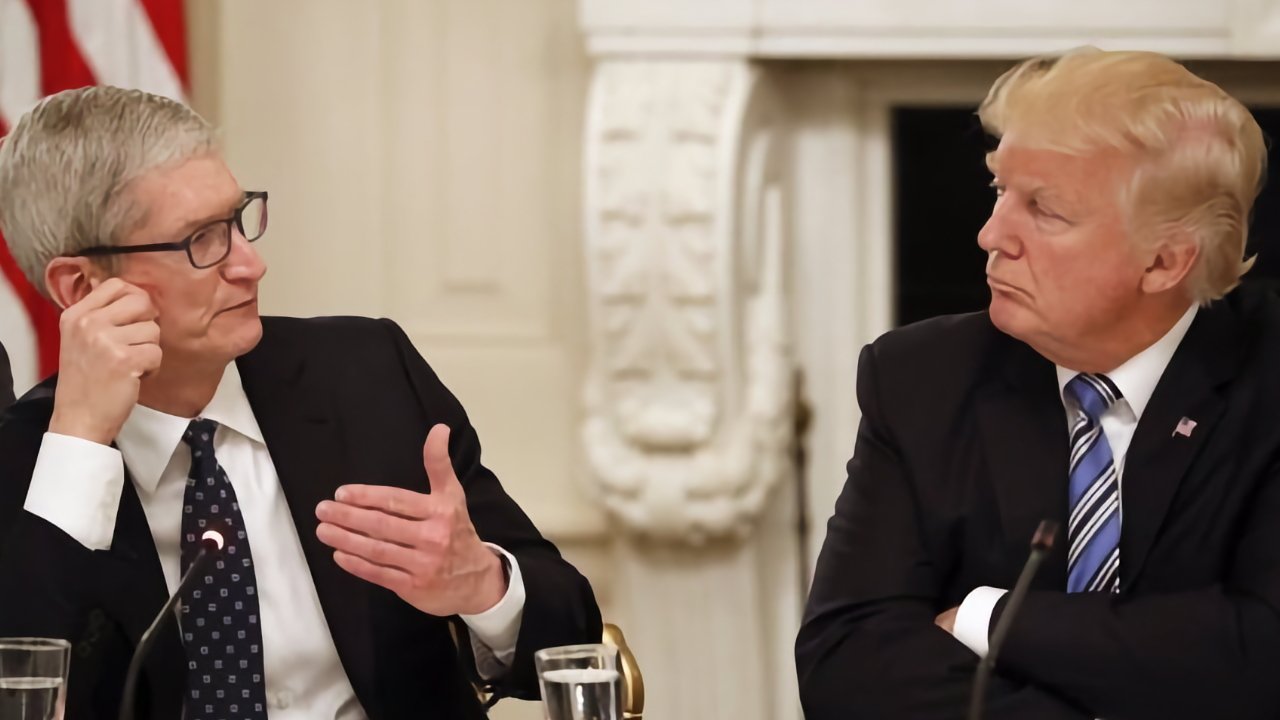Apple shares hammered after Trump tariff announcement
Apple stock took a huge dive in after-hours trading following the unveiling of new tariffs, and it just got worse when the markets opened.

Tim Cook (left) and President Trump
President Trump's tariffs have affected every single country that supplies Apple. That means Apple now has to pay much more for every import, and is unlikely to avoid raising its prices.
Consequently, the markets immediate reacted to the prospect of American consumers facing higher prices, and saw high volume sell-offs almost universally. This affected all technology firms, but in this extended after-market period, Apple was the worst hit, with its shares dropping around 7.5%.
Now that regular trading has resumed for the first day after the tariff announcement, all eyes have been on Apple to see whether it will recover, or continue to fall. For a brief moment at the very start of the day's trading, it looked as if the drop might hold steady.
However, within moments Apple was down 7%, then 8%, and after ten minutes it exceeded 9.5% before the figure appeared to settle. At 9:50 A.M. Eastern, Apple was down 9.28% since yesterday.
During his tariff announcement, Trump referred to Apple and spoke of how his efforts meant the company was now investing $500 billion in the US. "They never spent money like that here," he said.
He presented this as evidence that his tariffs will result in manufacturing returning to the US. But the market recognizes that this will not happen -- and that Apple's $500 billion announcement was political re-framing of work it was already doing.
Apple has so far spent years, and its suppliers have spent billions, trying to move away from relying on China. Still that country dominates, and it's unlikely Apple will ever be able to stop using it.
The reason is not economic, however, it's to do with the skills required to make Apple devices. Tim Cook has previously acknowledged that China used to be seen as a cheap source of manufacturing, "but it hasn't been for a long time."
As far back as 2012, Cook was saying publicly that he wanted Apple to make more in the US, but it wasn't possible.
"But look, how many tool-and-die makers do you know in America?" he said. "I could ask them, nationwide, to come here tonight and we couldn't fill [a few hundred seats in] this room."
Read on AppleInsider

Comments
The US is only 4.22% of the world's population, Building production capacity and training people in the US would take decades. Most companies will try to weather the Trump term and hope things return to normal.
The rest of the world will likely look at the 95.78% of the world's population and find our own way.
Is not the point of tariffs to reduce this 26% as it is a large trade imbalance with the rest of the world funded by debt.
It would appear to me useful if US consumers would bare the brunt of this transition by reducing their imports, which is what tariffs should do, painful though it will be.